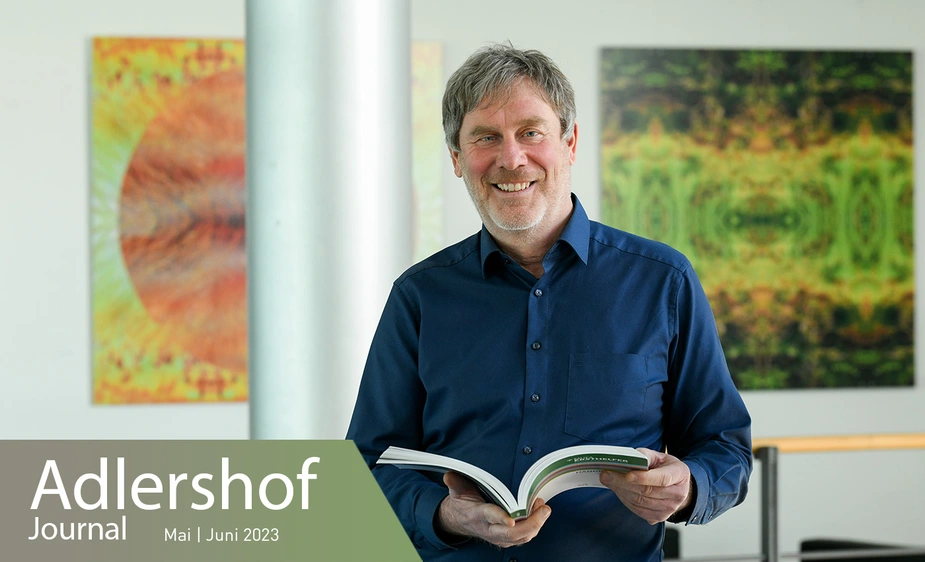Mental Health Lab: First responders of a different kind
Helmholtz-Zentrum Berlin wants to support the mental health of its employees
If the mere thought of going out to work is enough to send shivers down the spine, dedication has hit rock bottom, and the general well-being is off, this should set off the alarm bells. If this then leads to burnout, depression, or feelings of anxiety, treatment is often inevitable, and employees stay absent for longer periods.
What can a research facility do to protect employees from this? Helmholtz-Zentrum Berlin (HZB) decided to find out more as part of its diversity audits and, in early 2022, founded the Mental Health Lab. “We started with 10 employees from various departments within HZB who had a general interest in the topic,” says Markus Sauerborn, the project manager. “Our main task was to develop a concept of how to integrate and establish the topic of mental health at HZB.”
All those participating had known for some time that this was a pressing issue. A survey among the staff then made clear the full extent of it. Over 40 percent of the responses reported significant mental strain. “We were quite taken aback by this,” says Markus Sauerborn. Naturally, he is aware of the challenges that come with the work situation in a scientific environment. During university and while working on one’s dissertations, many develop a high tolerance for frustration. Later, positions in research are often fixed-term with the after-effects of the pandemic thrown in the mix. Everybody must keep pushing. “Most people try to remain unfazed,” he says. “They shake it off, take a week off, and get on with it.” This might even work for a while. However, there comes the point where some are affected by feelings of anxiety or depressive episodes. “There is no alternative to treatment at this point,” says Sauerborn. “We can’t deliver on this. More importantly, we should take preemptive measures and pay close attention to our colleagues. They need to know that, if they are feeling unwell, we are there for them to speak to.”
To this end, his fellow HZB campaigners have developed a concept as part of the Mental Health Labs. Management approved of the project last October – and it has now been implemented. Four mental health first responders are now available as first persons of contact. Like classic first responders, they receive basic training. “This highlights the main psychological crises that people can have, including substance abuse, depression, and anxiety,” he sums it up. “We were trained to identify these things by asking questions, by listening. And how to react.” To better describe his possibilities for action, Sauerborn compares them to first aid. “If someone cut his leg, as the first responder, I can stop the bleeding. But then I immediately make an alarm call,” he says. “It’s quite similar to mental health. I can stand with those affected. But then I have to call professional help. We are not therapists.”
The other three first responders and he do this job on a volunteer basis and in addition to their job-related duties. In his “main job”, Markus Sauerborn is involved with projects such as the planned particle accelerator BESSY III. “If someone approaches us, this then tends to become our top priority,” he says. “If the situation has not yet reached a state of crisis, we can make an appointment. If the person is already experiencing an acute crisis, however, we take action immediately.” However, such a dramatic situation has not yet occurred at HZB. He is quite glad about that. Besides creating suffering for those affected, it would also put extreme strain on the volunteer helpers. Their dedication and enthusiasm are essential for the mental health of everyone at their institution.
Kai Dürfeld for Adlershof Journal
